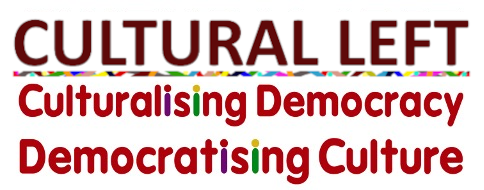
Chopped Liver and Unions details the radical life of Sara Wesker
Chopped Liver and Unions is a play about Sara Wesker, a Jewish refugee, strike leader, anti-fascist and Communist active in London’s East End. Sara was playwright Arnold Wesker’s aunt, and inspired the character of Sarah in his play Chicken Soup with Barley.
How did you research her story?
JJ: We tell Sara Wesker’s story because there is so little about her out there. The best sources were strike logs, where you can just spot her name as a strike organiser but then you find there are no further mentions.
The strikes she led were in the garment factories. They tended to be where there were male and female sections, and the women noticed men being paid more for the same work.
But the national garment union did not recognise the strikes—there was no strike pay, so the women became singing strikers. They went out singing songs and collecting donations.
Lottie: The garment strikers were in the tradition of the Match Girls who went on strike in the Bryant and May factory in the East End in 1888. They marched from Bow to Westminster, singing songs such as, “We’ll hang old Bryant on an old apple tree.”
JJ: There is a connection between the East End music hall tradition and women strikers. Because we performed a play about Nellie Power, a music hall singer, Lottie was invited to an event for the Match Girls. She met historian Louise Raw who told us about Sara Wesker, Arnold Wesker’s auntie and a singing striker.
We know Sara was born into a Jewish family in Ukraine and moved to East London when she was about five years old. She grew up in the Rothschilds building which was home to many Jewish migrants.
We only know about Sara through other people’s words. She features in Arnold Wesker’s play, but that was not necessarily historically accurate.
We have the words of her former lover Mick Mindell. There is a recorded interview with him when he was an old man. But he still talks about her with love and friendship. Mindell was also a union leader. So he was leading the men’s section and Sara was leading the women’s section of the union.
Sara would have started work very young. Her first strike was the Goodmans strike of 1926 so she would have been 25. She worked in the factory as a machinist.
In 1928 she organised 600 young women at the Rego Factory on Bethnal Green Road. The strike lasted for 12 weeks until the workers won.
It is a fascinating moment in history. In 1920 the Communist Party was founded, and more strikes were happening.
We always say that the East End makes radicals—people grew up in atmosphere which was all about standing up for people.
Sara was at the Battle of Cable Street with the Irish Dockers, the Somali sailors, the Jewish population, trade unionists—everyone was united against the fascists.
Lottie: The Battle of Cable Street against the fascists in 1936 was a crucial moment in Sara’s life. She was there as part of the Communist Party. If she had a religion, it was probably Communism.
JJ: She was on the executive committee of the Communist Party. The play starts in 1956, when Soviet tanks rolled into Hungary. Lots of people turned their backs on the Communist Party, but Sara never did. So our play explores what happens when your ideals don’t align with your party any more.
Lottie: Sara was really destroyed by the Communist Party. The party didn’t really want to know Sara—she was too radical for them. The CP was becoming more mainstream. She was asked to leave her official role.
She had a stroke and never really recovered. She lost the power of speech and went to live with her Auntie Anne in Chingford.
JJ: It is a cruel irony that this great speaker lost her power of speech. We don’t have her speeches—we have speeches about her. We don’t have any of her writings—just writings about her. It is such an injustice. There are virtually no photos of her.
Why is Sara’s story important today?
Lottie: I always say that the only thing to change in history is the name—the stories are the same and we’re still fighting the same battles.
We’ve often said that Chopped Liver and Unions is a play for today despite being set in the first half of the last century. History is full of women like this.
And I think it’s important that we tell untold stories as they are more relatable to the audience who can genuinely think, “This could be me.” Elements of Sara story is my story—and most women’s stories, to be honest.
I’m not a massively political person but I can’t bear injustice and I’m from an East End trade union family.
My dad was a docker and it seemed that he was always on strike when I was small. So it’s pretty easy for me to get fired up when I’m playing Sara.
I wish I had half her courage and a quarter of her charisma. Several people have told us that we should take the play into schools specifically to illustrate how hard won our rights were to try to head off complacency. It would be a start.
JJ: Don’t underestimate the impact one person can have. So many wonderful people in history—the one person who mobilises others, who reaches a bigger group. One person can have a huge impact.
- Visit Blue Fire Theatre Co. for tour dates
- Lottie and J.J. have a podcast Famous People You’ve Never Heard Of




